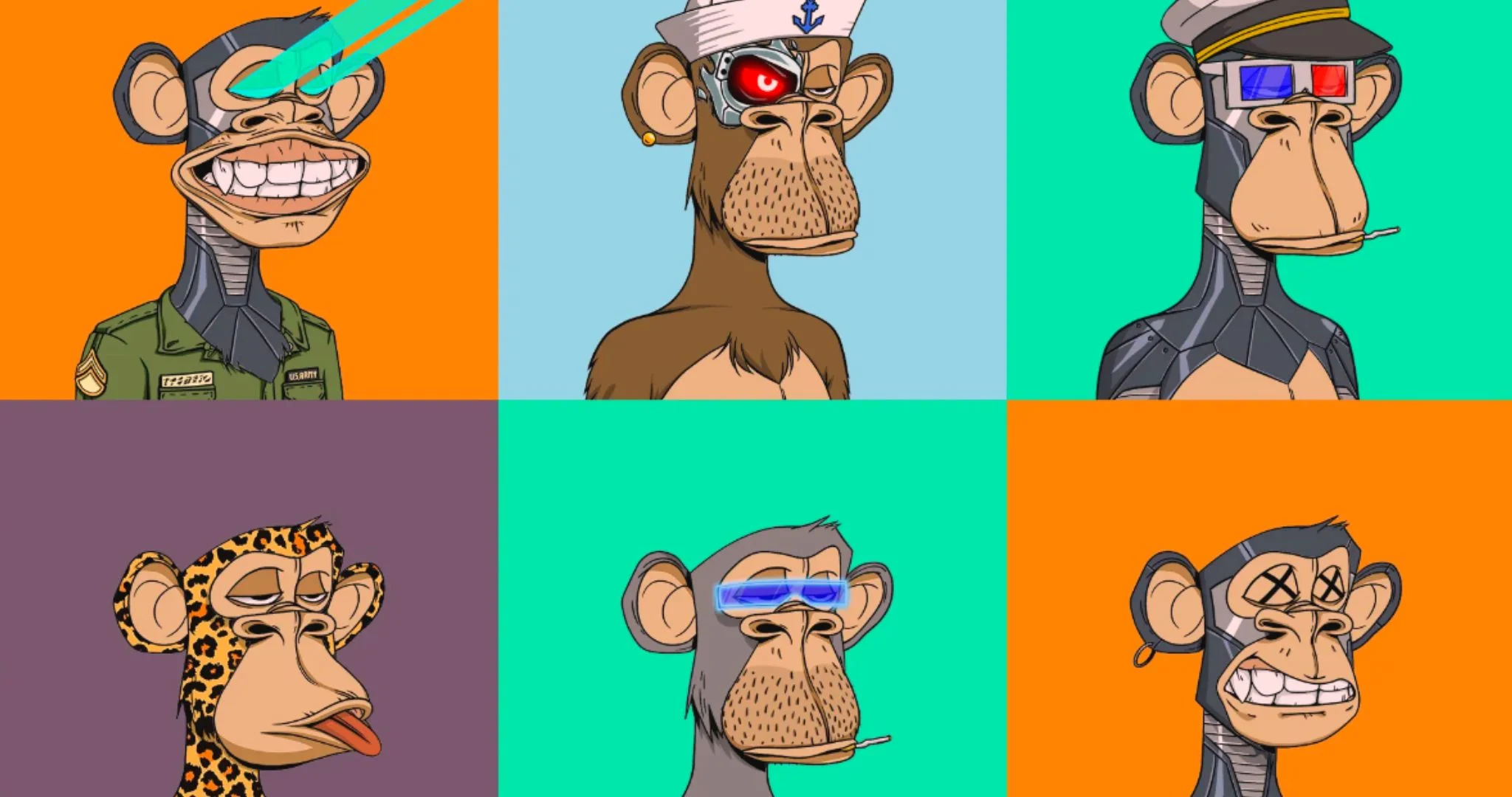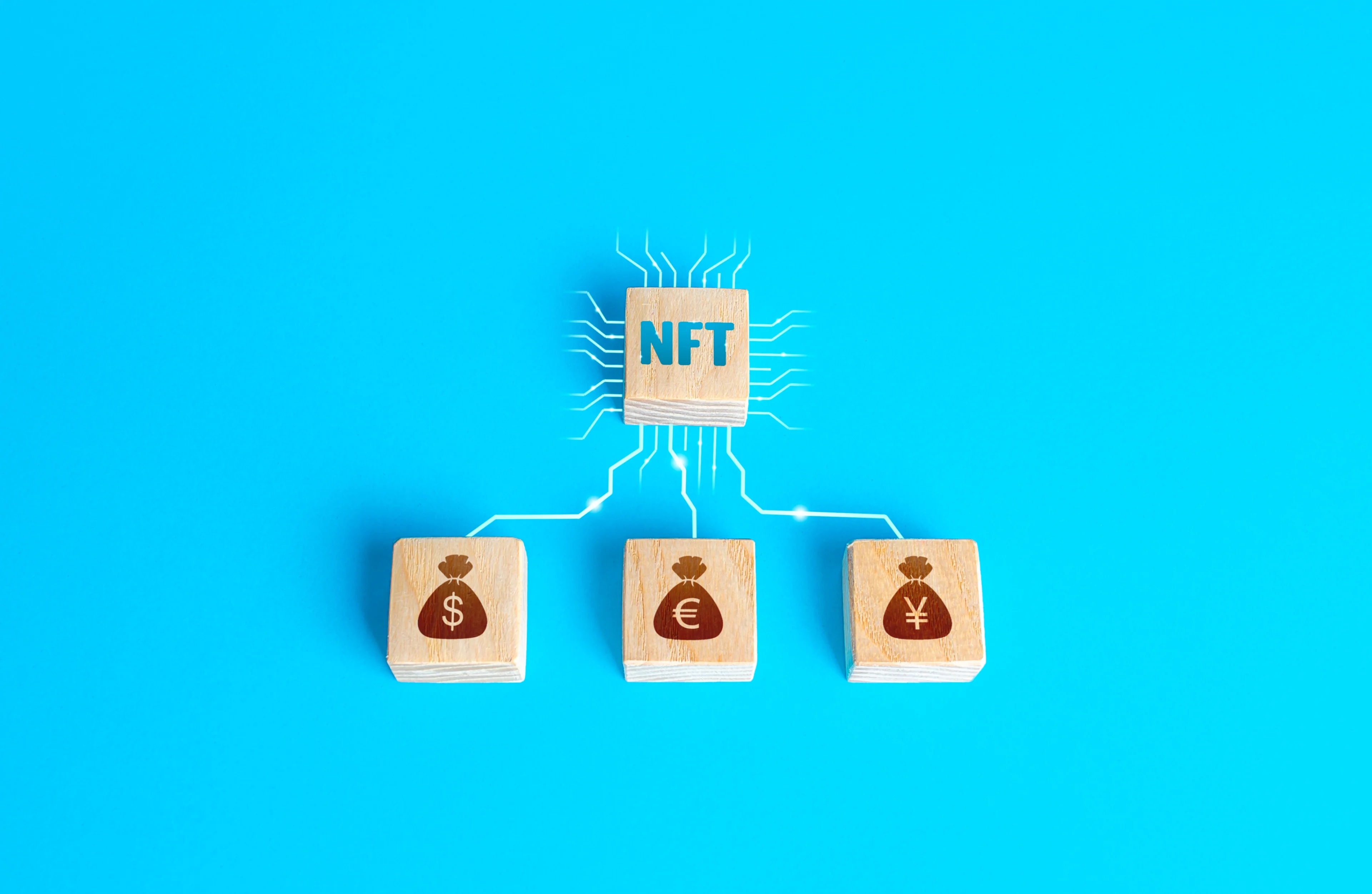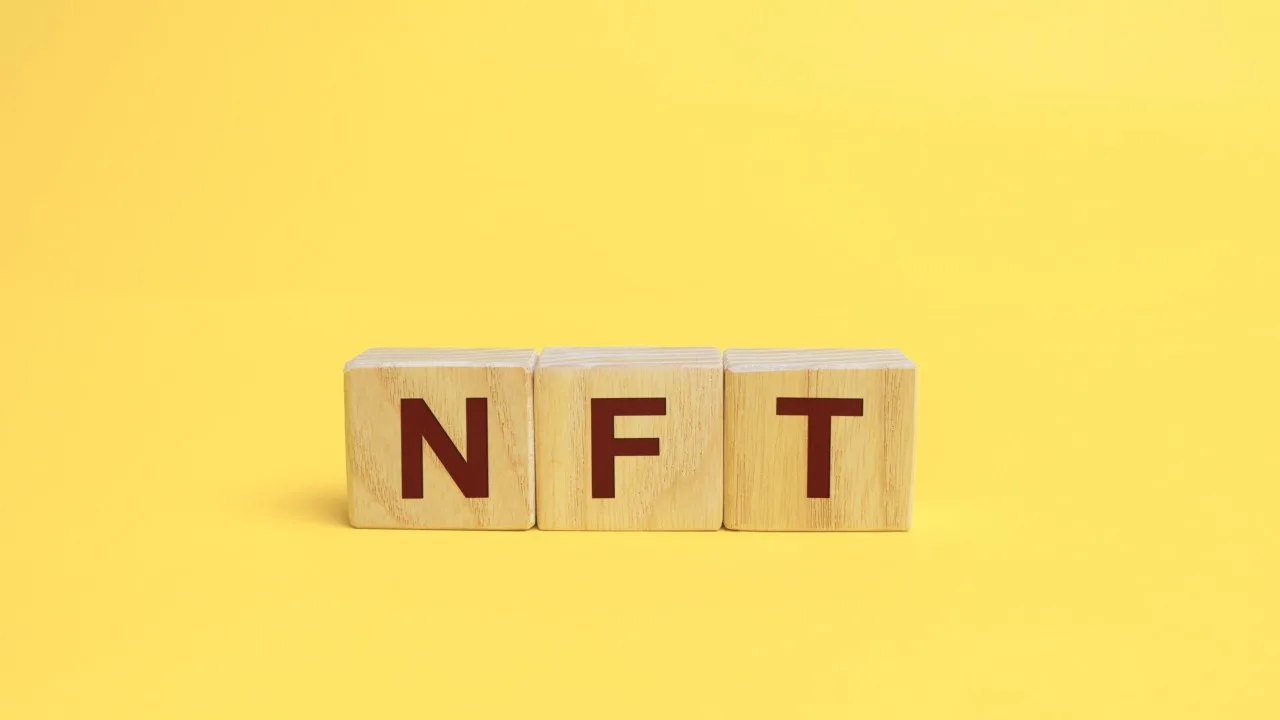Back to Blog
What Is a Bored Ape? A Guide to the Iconic BAYC NFTs

Nick Fouriezos
Mar 8th, 2023
.6 min read

As the most popular NFT collection of all time, Bored Ape Yacht Club has made its parent company Yuga Labs a symbol for Web3 culture, and a crucial building block for the future of the internet.
But the icon goes beyond digital images of blasé Apes. The collection is like a window into a thriving ecosystem. To fully grasp it, we need to explore how it leveraged meme culture and a strong IP to build its incredibly loyal community.
What is Bored Ape Yacht Club?
The Bored Ape Yacht Club is a unique project that combines art, membership clubs, and cryptocurrency with recent expansion into the metaverse and other projects. It began in April 2021 as a series of 10,000 distinct, hand-drawn illustrations of unique apes, each playing on the trope of crypto fans “aping in” to crypto and NFT projects.
Individual Apes have their own special characteristics — distinct visual features, from their body type to background, clothing, accessories, and more — which makes some Apes rarer than others.
While the Apes sold at launch for roughly $190 each, they quickly became a hit among collectors, soon selling for tens or even hundreds of thousands of dollars each as celebrities like Justin Bieber, Snoop Dogg, and Jimmy Fallon bought their own.
In October 2021, Bored Ape #8817 became the most expensive Ape of all time when it was sold for $3.4 million at an auction housed by Sotheby’s, a moment that enhanced the reputation of digital art and solidified the status of NFTs in pop culture and general society. The sale was followed by a November yacht party that included Chris Rock, Aziz Ansari, and The Strokes.
Why are Bored Apes so valuable?
Owning a Bored Ape isn't just about owning a piece of digital property or art: Many art critics have already pointed out that these algorithm-generated pieces aren’t on par with the Mona Lisa (although if you are interested in an Ape Mona Lisa, they exist). Human beings seek connection and, in a world where traditional social gatherings and events had been put on hold due to the pandemic, the Bored Ape Yacht Club stood out for its unique (and irreverent) way to connect with others.
Apes are about access — to exclusive merchandise, events, perks, and, yes, a like-minded community of individuals who espouse a love for art, NFTs (non-fungible tokens), and, of course, yachts. While that may invite criticism of exclusivity and elitism from some, Apes nonetheless have captured people’s attention across the globe.
And Bored Ape’s value has grown in tandem with its brand, following the playbook of other companies whose strong communities are built around IP. For example, luxury fashion and sneaker brands also use limited-edition releases and collaborations to increase demand and create a sense of scarcity and exclusivity among customers.
Nike can sell Air Jordans for hundreds of dollars more than its competitors, not just because of the quality of the shoes, but because of the brand's legacy reputation — just as luxury retailers like Gucci can sell sunglasses or slippers at higher prices because of the power of their brand, and the recognition that their products typically retain value over time.
Similar to how Nike and Gucci have established themselves as cultural symbols of status and identity through their products, Bored Apes has created a similar sense of community and exclusivity through its NFT collectibles.
How do you buy a Bored Ape?
To own a Bored Ape, one must first purchase it on a secondary marketplace like NFT.com, since the initial minting process has long been closed. Once purchased, the owner gains access to membership in the Bored Ape Yacht Club.
The collection is built on the Ethereum blockchain, and each Ape is a unique and verifiable digital asset with its own set of unique characteristics and rarity. That Ape which sold for $3.4 million? It did so in part because it was one of less than 1 percent of Apes with the rare gold fur trait, making it even more valuable.
But soon, a new collection on the Bitcoin-based Ordinal protocol will brandish the Yuga Labs flag. In late February, the firm beyind BAYC announced TwelveFold, a 300-piece collection of generative art NFTs placed on a grid of 12 by 12 -- to create what Yuga Labs calls "a visual allegory for the cartography of data on the Bitcoin blockchain," according to a CoinDesk report.
Apes, NFTs, and harnessing meme power
Memes have essentially been around since the beginning of culture, although the term initially came from the evolutionary biologist Richard Dawkins, who coined the term in his 1976 book, “The Selfish Gene.” He described it as any idea or behavior that spreads from person to person within a culture, but it was really in the 1990s and early 2000s that the rise of social media precipitated the launching of a “meme culture.”
Apes exemplify the cultural power of NFTs, and their ability to harness meme culture to build a strong community of support. Memes often convey complex ideas and emotions in a simple and easily shareable format, making them an effective tool for communication and expression — and, perhaps most importantly, they’re fun.
Many companies have taken notice of the power of meme culture, incorporating memes into their marketing strategies to drive sales, from Wendy’s sassy Twitter profile to clothing brand Fashion Nova’s use of meme accounts and influencer marketing — which raked in more than $4 million in revenue in 2021. Some have called it “meme wear” for the Instagram generation).
NFTs are uniquely positioned to capitalize on memes the way Bored Ape Yacht Club did because of the way digital art plays an essential role in meme culture. Forward-thinking nonprofits have capitalized on this, launching NFT collections to support their favorite causes. For example, consider the collection designed to fund change-makers, “Honey Badges,” or the Pawthereum contribution of 26 Ethereum (nearly $118,000 at the time) to animal welfare organization Edinburgh Dog and Cat Home.
The evolution of Bored Ape Yacht Club, and the future of IP
Yuga Labs has built an empire around the popularity of its Bored Ape Yacht Club collection, with the firm subsequently hiring a slew of artists, social media managers, Discord community managers, and other C-suite executives to create what one founder has called “a Web3 lifestyle company," according to a Rolling Stone interview.
It then built on its inaugural Apes with a series of secondary collections, including the Bored Ape Kennel Club, Mutant Serum, and Mutant Ape Yacht Club, while also launching the cryptocurrency $APE coin through its affiliated ApeCOIN DAO.
In addition, Yuga Labs bought all of the CryptoPunks and Meebits intellectual property for an undisclosed sum in March 2022, a consolidation of the world’s biggest NFT projects that solidified the company as a leader in the space.
But that doesn't mean it's over for traditional brands. As long as you have a high-quality IP, it's comparably simple to learn from the success of Bored Ape Yacht Club. Here are some straightforward observations to take to heart:
Embracing the community-driven approach: Bored Ape Yacht Club's success was largely due to its engaged community. Traditional brands can foster a similar sense of engagement by building and nurturing authentic relationships with their community. For example, Bored Ape's Dookey Dash skill-based game proved to be extremely popular (and addictive) for players, which was open to roughly 26,000 players from January 19 to February 8.
Exclusive perks and benefits: Bored Ape Yacht Club's members have access to unique benefits like exclusive merchandise and access to events that make them feel closer to the brand and each other. Traditional brands can create similar offerings that make their customers feel special and valued.
Leveraging digital platforms: Bored Ape Yacht Club's success was largely due to its use of memes and social media, in addition to Web3 technology built on the blockchain, to build and engage with its community. Traditional brands can learn to use such platforms effectively while returning value back to their customers.
Embracing non-traditional revenue streams: While Bored Ape Yacht Club generates revenue through traditional merchandise, it also builds revenue through the royalties encoded into each NFT, which returns value back to Yuga Labs with each re-sale. Traditional brands can explore using NFTs to build non-traditional revenue streams that leverage their high-value IP to generate additional recurring royalty revenue.
Entering the metaverse — with Kodas
Bored Apes are now out of this world in the wake of Yuga Labs' entrance into the metaverse in March 2022. The debut involved wherein an Ape is escorted through the “Otherside” virtual realm by an ethereal creature simply known as a “Koda.”
Its first live demo event, in July 2022, included 4,500 holders exploring the Otherside together — a Fortnite-like experience that, while initially limited, will likely become even more immersive with time.
Related Posts

How To Buy NFTs In 2023 - All You Need To Know - NFT.com
Are you new to buying NFTs? Discover the five steps you need to know to pur...

Don Thibeau
Feb 22nd, 2023

How To Trade on OpenSea - NFT.com
Discover how to buy and sell NFTs on the popular OpenSea marketplace.

Don Thibeau
Feb 27th, 2023

How Do NFTs Work? Learn the Basics - NFT.com
Clueless about how NFTs work? Keep reading! This article will explain the w...

Don Thibeau
Feb 7th, 2023